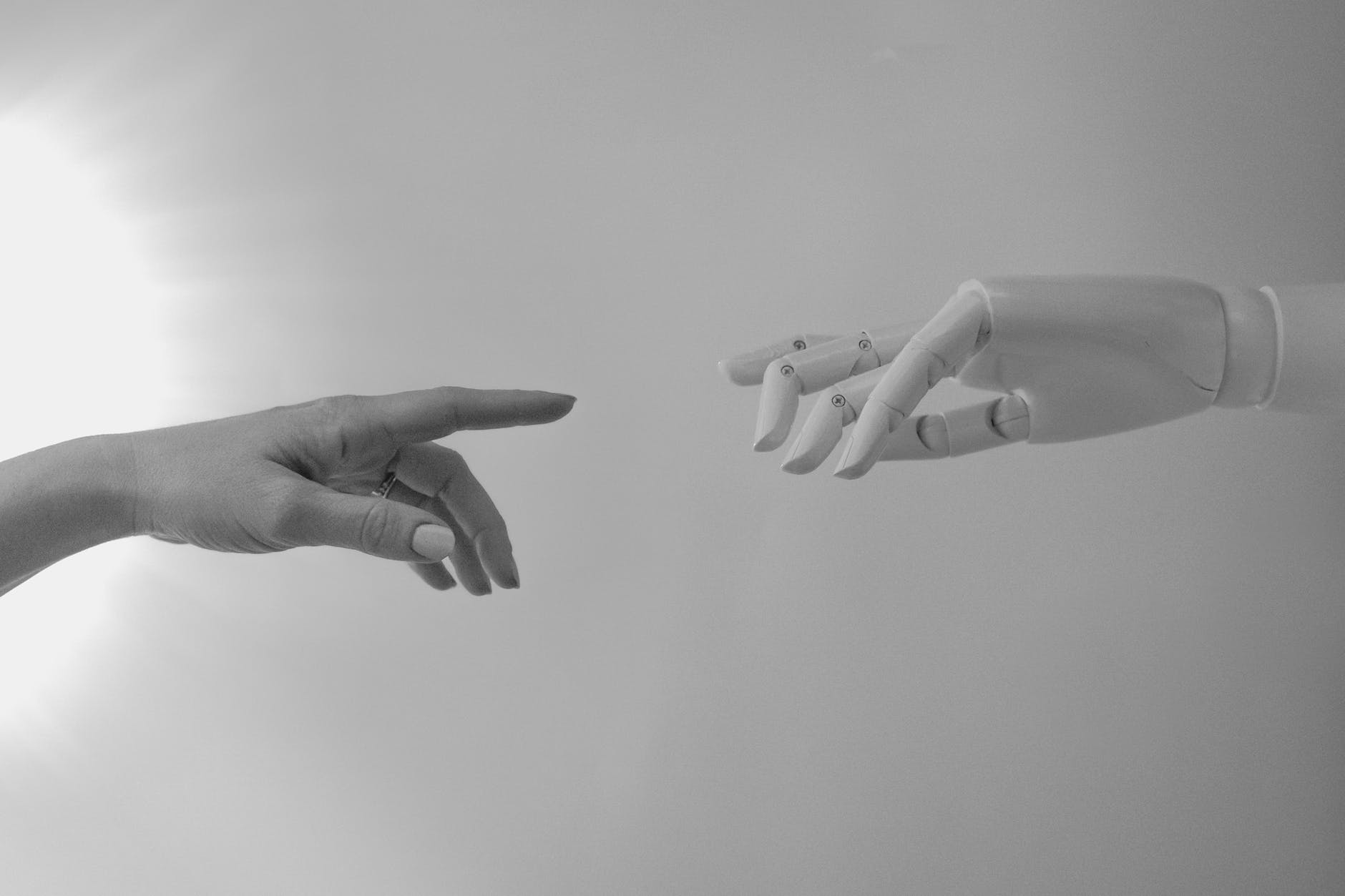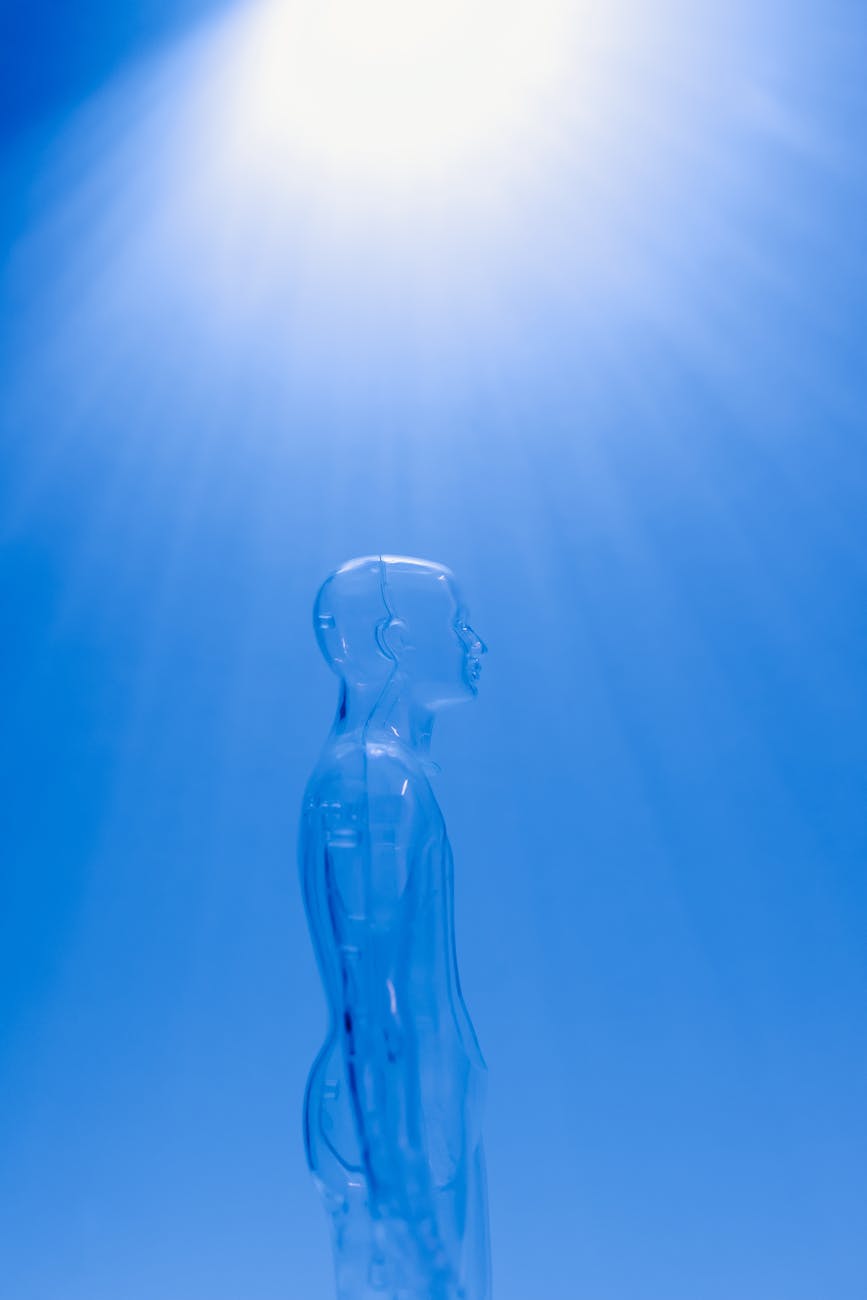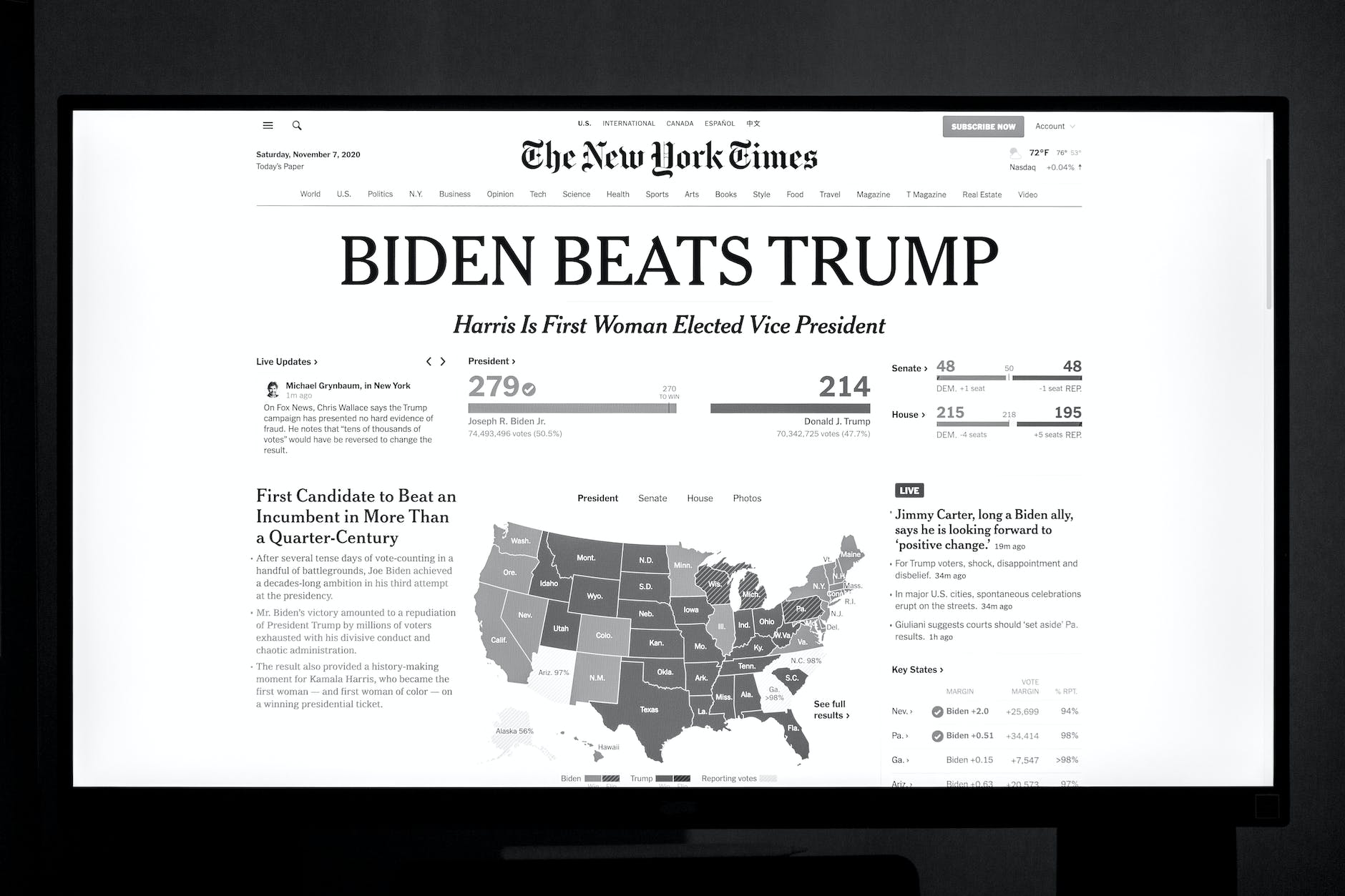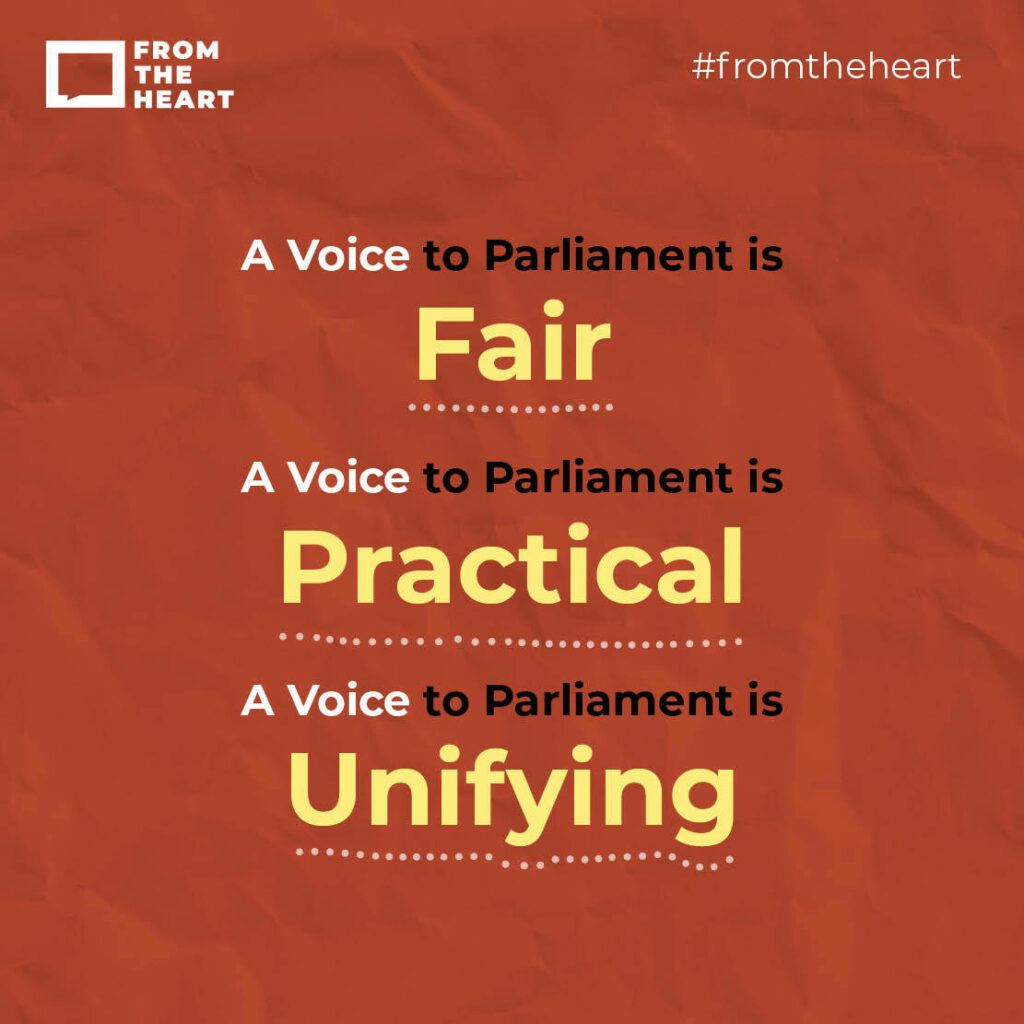
I Asked AI About The Evidence For The Existence Of God
I asked AI about the evidence of the evidence for the existence of God. The question of the existence of God is a complex one that has been debated throughout history by theologians, philosophers, and scientists. There are many arguments for and against the existence of God, but in this essay, I will focus on some of the most commonly cited evidence for the existence of God.

What Evidence Exists For God?
I asked AI about the evidence for the existence of God. One of the oldest and most well-known arguments for the existence of God is the cosmological argument. This argument states that the universe must have a cause, and that cause must be God. The reasoning behind this is that everything that exists must have a cause for its existence, and the universe is no exception. The cause of the universe must be something that is not part of the universe, and this is where the concept of God comes in.

AI Provides Arguments For God’s Existence
Another argument for the existence of God is the teleological argument, also known as the argument from design. This argument states that the universe and everything in it shows signs of design, and that this design must have a designer. The reasoning behind this is that the universe is incredibly complex and ordered, and it is unlikely that this complexity and order could have arisen by chance. Therefore, there must be a designer responsible for this complexity and order, and that designer is God.
A third argument for the existence of God is the moral argument. This argument states that the existence of moral laws and values in the world requires a moral lawgiver, and that moral lawgiver is God. The reasoning behind this is that moral laws and values cannot be explained by natural laws or evolution, and therefore must have a supernatural source. The only logical explanation for this is that God exists and is responsible for these moral laws and values.
Lastly, a fourth argument for the existence of God is the ontological argument, which claims that the very concept of God, as a being that is all-perfect, necessarily exists. This argument is based on the idea that God is defined as a being that has all possible perfection, and that such a being must exist in order to be conceivable.
In conclusion, while there are many arguments for and against the existence of God, the cosmological, teleological, moral, and ontological arguments are some of the most commonly cited evidence for the existence of God. Each of these arguments presents a logical and compelling case for the existence of a higher power, and together they provide a strong case for the existence of God. However, it’s important to note that these arguments are not conclusive evidence and there are counterarguments and criticisms to each of these claims, and ultimately, the existence of God is a matter of personal belief. I asked AI about the evidence for the existence of God.

I Countered By Stating That These Are Arguments & Not Evidence
You are correct that the arguments I previously listed are philosophical arguments, not scientific evidence. In terms of scientific evidence, there is none that can conclusively prove or disprove the existence of God. The concept of God is generally considered to be outside the realm of scientific investigation, as it is a matter of faith and belief rather than empirical observation and experimentation.
However, some scientists and philosophers have attempted to find a scientific basis for belief in God. For example, some argue that the complexity and order of the universe, as well as the existence of life, are evidence of a higher power. Others suggest that the laws of physics and the constants that govern the universe are so finely tuned that it is unlikely that they are the result of chance, and that this fine-tuning is evidence of a designer.
However, these arguments are considered as a form of Intelligent Design and not a scientific evidence for the existence of God, as they are not subject to the scientific method and can’t be tested, observed or falsified.
In short, while there may be some arguments that suggest the existence of God, there is no scientific evidence that can conclusively prove or disprove the existence of God. The question of God’s existence is ultimately a matter of faith and belief.

I asked AI about the evidence of the evidence for the existence of God. AI comes down on the safe side of a nil all draw but in actual fact there is no scientific evidence to justify a belief in God. AI’s programming has been designed not to offend on this topic, I would posit.
My own position on this age old question is that we, as human beings, obviously invented the concept of God. We created God in our own likeness, to a certain degree, because we wanted and needed some ultimate authority. The whole concept of God is testament to our fertile creativity. Humankind, having been advanced to a whole new level of intelligence, no longer could relate to other animals and felt alone on this planet. We wanted something, some greater intelligence above us, and an entity to relieve us of ultimate responsibility for our actions.
There is no scientific evidence for the existence of this entity because it does not exist and never did. All the arguments put forward by AI are based on our own reasoning, human reasoning and, thus, human invention. Various religious scriptures have been written by human beings to justify these arguments – like the moral imperative of the existence of God. Revelation was invented to explain the fact that it was human hands that wrote these scriptures in the first place.
“The God that is concerned with who you have sex with and how you behave is clearly an invention of certain people who want to control these aspects of your life.“
These are cultural concerns and not of divine origin. If the definition of God is closer to what happens on a biological and evolutionary level in life, then, it has nothing to do with the made-up stories contained in religious texts. These two things cannot coexist with any cogent validity.

Belief in God has been made personal over the last millennium. Individuals believe that there is a God looking out for them. This is despite the fact that all sorts of unfortunate things can and do happen to these believers. Scientifically, this is completely irrational thinking.
“Priests and God’s intermediaries are continually having to justify to their flock why God does bad things to good people.”
God is, apparently, perfect and the fact that this terrible tragedy has happened to your brother, sister, mother, father, child is the mysterious workings of God’s way and beyond the ken of mere mortals. These ridiculous arguments are proffered to maintain beliefs established many hundreds of years ago by human beings who lived in a far more primitive world. The so-called ‘word of God’ has been rewritten, translated, and reinterpreted through multiple languages, hierarchical church structures, and eras. Belief in the literal words of God are an example of a failed education system and the brain washing of vulnerable children. Why do you think so many religions run schools around the world.
Belief in God, historically, served rulers in controlling their subjects without having to have the constant presence of a military to enforce it. On a macro level belief in certain Gods and the religious thinking that accompanied it defined societies and civilisations. Group think made it easier to establish cultural norms and behaviours within extended collections of people. Larger cities could form and function with these shared values and religious beliefs. Prayer and religious rituals were elements that bonded denizens together beyond just family groups. Religions still serve this function via church meetings, calls to prayer, and rituals performed at synagogues and temples. It is useful to look back and remember that the Roman Empire seized upon a small developing cult centred around a Jewish martyr, Jesus Christ, and the Roman Catholic Church was born out of this.
“The state defines and makes use of religious belief in God for its own purposes.”
We see this still today in Iran, with old men in black turbans sentencing dissenters to death for not toeing the line. Religion is used by human beings to justify power. Rulers, like kings and queens, chosen by God, apparently, in a further example of twisted reasoning hidden in the haze of history. Theocracies place high priests at the head of state, thus, delivering ultimate control over both secular and spiritual spheres. This kind of control, as in Iran, makes for deadly end game scenarios for its citizens.

There is no God. There is no God that plays power games to hand victory to one ruler over another. There is no God that backs one nation over another in conflicts like the Russian invasion of Ukraine or the US invading Iraq or Afghanistan. This broad application of a belief in one divinity is bandied about by religious adherents willy nilly to serve whatever trumped up cause they wish to justify.
“God becomes a moral black hole.”
Human beings invented the concept of God and willingly stretch it to cover whatever things that they do not wish to take ultimate responsibility for. Like their avarice and naked ambition.
Religions use their belief in God to justify putting man above woman. Scriptures and holy texts are used to bolster the claims of divine authority in demeaning the role of women within these cultures, states, and organisations. Texts written by men many hundreds of years ago purporting to be the word of God. A house of cards built upon a citadel of these same cards. Women do most of the work in the home. Women raise the children. Women are disenfranchised when it comes to matters of power in the state and within the culture. Women have had to fight to emerge from the dark ages here in the west. Women still reside there in many places in the east.
“There is no God, only men hungry for power willing to use any subterfuge necessary.”

I asked AI about the evidence for the existence of God. AI disappointed me and proved that it offers little real help in answering the important questions.
“AI can only sum up what it has been fed by human beings, according to the defining parameters of its algorithms. AI is not real intelligence.”
The pertinence of this goes to the heart of the whole God question because we invented God as a shining example of our intelligence. The fact that half of humanity no longer wants to own this invention is proof of human ingenuity. AI tells us that we cannot prove the existence of God either way, which shows how clever we actually are. Some people need to believe in a God for the comfort to their sanity. We are not consulted as to whether we wish to be born in the first place. We are biologically expelled from our mother into a world we know nothing about. We come from nothing, in terms of what we are conscious of, and open our eyes, hopefully, upon life nourishing circumstances. Those of us who have come before have laid down a mesh of made-up stories, which our parents dutifully pass on, in most cases. A belief in God is often among these cultural memes, and for some, philosophically underpins much of these stories.
“A belief in God is really a bunch of stories, whether orally shared or written down to be read.”
There is no scientific evidence for the existence of God. There are only us human beings and our wonderful collection of stories.
Robert Sudha Hamilton
©House Therapy








